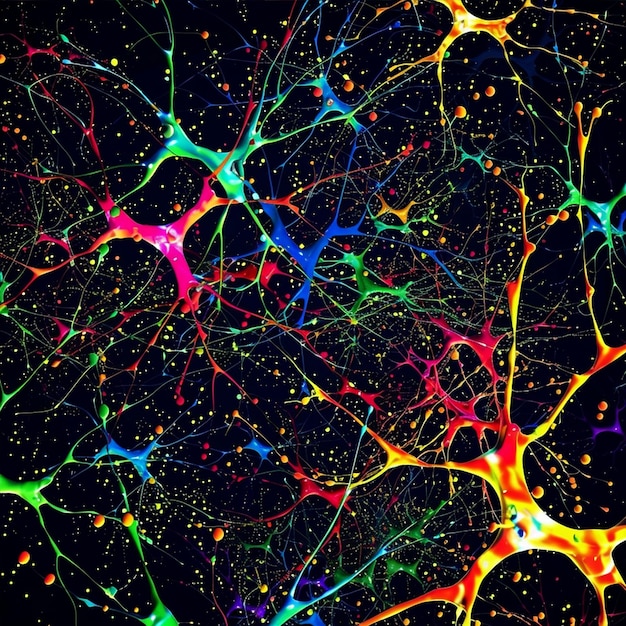Mediterranean Diet & Alzheimer’s: New Research Shows 35% Risk Reduction

New research suggests that adhering to a Mediterranean diet may significantly reduce the risk of developing Alzheimer’s disease by up to 35%, offering a promising dietary approach for promoting cognitive health and healthy aging.
Can a simple change in diet really impact your risk of Alzheimer’s? New Research: Can a Mediterranean Diet Reduce Alzheimer’s Risk by 35%? This groundbreaking study explores the profound connection between what we eat and the health of our brains, providing compelling evidence for the power of the Mediterranean diet in healthy aging.
Unlocking the Power of the Mediterranean Diet
The Mediterranean diet, celebrated for its numerous health benefits, centers around traditional eating patterns of countries bordering the Mediterranean Sea. But can it truly make a difference in preventing a devastating disease like Alzheimer’s? Let’s dive into what makes this diet so special and how it might protect your brain.
This isn’t just another fad diet. It’s a lifestyle centered around whole, unprocessed foods, rich in nutrients crucial for overall well-being. The emphasis on plant-based foods, healthy fats, and lean proteins sets it apart from many modern diets that often prioritize convenience over nutritional value.
Key Components of the Mediterranean Diet
Understanding the core elements of the Mediterranean diet is essential to appreciating its potential health benefits. Here are some of the foundational aspects to consider:
- High intake of vegetables, fruits, nuts, seeds, legumes, and whole grains
- Use of olive oil as the primary source of dietary fat
- Moderate consumption of fish and poultry
- Low intake of red meat and processed foods
These components work synergistically to provide a wealth of antioxidants, healthy fats, and essential nutrients that support brain health.

The Mediterranean diet isn’t about restriction, but rather about abundance – focusing on natural, wholesome foods that nourish the body and mind.
The Mediterranean Diet and Overall Health
Beyond its potential impact on Alzheimer’s risk, the Mediterranean diet has been linked to a wide range of health benefits, including improved cardiovascular health, reduced risk of type 2 diabetes, and better weight management. These benefits collectively contribute to overall well-being and longevity.
In conclusion, the Mediterranean diet is not just a way of eating; it’s a holistic approach to health that prioritizes nourishment, enjoyment, and well-being. Its potential to reduce Alzheimer’s risk, as suggested by new research, makes it an even more compelling dietary choice for those seeking to protect their cognitive health as they age.
The New Research: A Closer Look
The recent study shedding light on the Mediterranean diet’s impact on Alzheimer’s risk is a significant step forward in understanding preventative measures. New Research: Can a Mediterranean Diet Reduce Alzheimer’s Risk by 35%? Let’s examine the details of the research and what it means for you.
Researchers meticulously analyzed data from a large cohort, focusing on individuals who adhered closely to the principles of the Mediterranean diet. The results were compelling, showing a notable reduction in Alzheimer’s risk among those who followed the diet most consistently.
Study Design and Methodology
The strength of a study lies in its design and methodology. Here’s a glimpse into how the researchers conducted this important investigation:
- Longitudinal study design, tracking participants over several years
- Detailed assessment of dietary habits using validated questionnaires
- Diagnosis of Alzheimer’s disease based on standard clinical criteria
- Statistical analysis to adjust for potential confounding factors
These rigorous methods enhance the reliability and validity of the findings, lending credibility to the conclusion that the Mediterranean diet can indeed play a protective role.
It’s important to note that while the study suggests a strong association, it doesn’t definitively prove a cause-and-effect relationship. However, the findings are consistent with a growing body of evidence supporting the benefits of the Mediterranean diet for brain health.
Key Findings and Implications
The most striking result of the study was the observed 35% reduction in Alzheimer’s risk among those who closely followed the Mediterranean diet. This finding has significant implications for both individual health and public health policy.
Imagine a future where Alzheimer’s is less prevalent, where more people are able to maintain their cognitive function and independence as they age. The Mediterranean diet could be a key part of that future, offering a simple yet powerful tool for promoting brain health.
In conclusion, the new research provides compelling evidence for the potential of the Mediterranean diet to reduce Alzheimer’s risk. While further studies are needed to confirm these findings, the available evidence suggests that adopting this dietary pattern could be a valuable strategy for protecting cognitive health.
How the Mediterranean Diet Protects the Brain
Why is the Mediterranean diet so beneficial for brain health? The answer lies in its unique combination of nutrients and bioactive compounds. New Research: Can a Mediterranean Diet Reduce Alzheimer’s Risk by 35%? Let’s explore the underlying mechanisms that make this diet so protective.
The brain is a highly metabolically active organ, requiring a constant supply of energy and nutrients to function optimally. The Mediterranean diet provides these essential building blocks, supporting neuronal health and cognitive function.

Antioxidant Power
Fruits, vegetables, and olive oil are rich in antioxidants, which protect brain cells from damage caused by oxidative stress. Oxidative stress is a major contributor to aging and neurodegenerative diseases like Alzheimer’s.
Anti-Inflammatory Effects
Chronic inflammation can harm brain cells and impair cognitive function. The Mediterranean diet’s anti-inflammatory components, such as omega-3 fatty acids found in fish, help to reduce inflammation and protect the brain.
The Role of Healthy Fats
Healthy fats, particularly monounsaturated fats from olive oil, are crucial for brain health. They support the structure and function of brain cell membranes, improving communication between neurons.
These mechanisms work together to create a brain-friendly environment, promoting neuronal health, protecting against damage, and supporting cognitive function. It’s a holistic approach that nourishes the brain from the inside out.
In conclusion, the Mediterranean diet protects the brain through a combination of antioxidant, anti-inflammatory, and neuroprotective mechanisms. By providing essential nutrients and bioactive compounds, this dietary pattern supports neuronal health and cognitive function, potentially reducing the risk of Alzheimer’s disease.
Implementing the Mediterranean Diet: A Practical Guide
Ready to embrace the Mediterranean diet and protect your brain health? New Research: Can a Mediterranean Diet Reduce Alzheimer’s Risk by 35%? Here’s a practical guide to help you get started.
Adopting a new dietary pattern can seem daunting, but the Mediterranean diet is surprisingly flexible and adaptable. It’s about making gradual changes and focusing on whole, unprocessed foods.
Start with Small Changes
Don’t try to overhaul your diet overnight. Begin by incorporating one or two Mediterranean-inspired meals each week.
Focus on Plant-Based Foods
Fill your plate with colorful vegetables, fruits, legumes, nuts, and seeds. These foods are packed with antioxidants, vitamins, and minerals that support brain health.
Choose Healthy Fats
Replace butter and other unhealthy fats with olive oil. Use it for cooking, salad dressings, and drizzling over vegetables.
- Swap butter for olive oil in cooking.
- Add nuts and seeds to your breakfast or snacks.
- Include a side salad with every meal.
Remember, it’s about progress, not perfection. Even small changes can make a big difference in your health.
In conclusion, implementing the Mediterranean diet is easier than you might think. By starting with small changes, focusing on plant-based foods, and choosing healthy fats, you can gradually adopt this brain-healthy dietary pattern and reap its numerous benefits.
Lifestyle Factors that Enhance the Diet’s Benefits
While the Mediterranean diet is a powerful tool for protecting against Alzheimer’s, it’s even more effective when combined with other healthy lifestyle habits. New Research: Can a Mediterranean Diet Reduce Alzheimer’s Risk by 35%? Let’s explore these synergistic factors.
A holistic approach to health recognizes that diet is just one piece of the puzzle. Other lifestyle choices, such as exercise, sleep, and social engagement, also play crucial roles in brain health.
Regular Physical Activity
Exercise promotes blood flow to the brain, stimulates the growth of new brain cells, and improves cognitive function. Aim for at least 30 minutes of moderate-intensity exercise most days of the week.
Adequate Sleep
Sleep is essential for brain health. During sleep, the brain clears out toxins and consolidates memories. Aim for 7-8 hours of quality sleep each night.
Social Engagement
Staying socially active can help to protect against cognitive decline. Connect with friends and family, participate in community activities, and engage in hobbies that you enjoy.
These lifestyle factors work in synergy with the Mediterranean diet to create a brain-friendly environment. They support neuronal health, protect against damage, and promote cognitive function.
In conclusion, combining the Mediterranean diet with regular physical activity, adequate sleep, and social engagement can further enhance its benefits for brain health. A holistic approach to health recognizes that diet is just one piece of the puzzle and that other lifestyle choices also play crucial roles in protecting against Alzheimer’s disease.
| Key Point | Brief Description |
|---|---|
| 🧠 Alzheimer’s Risk Reduction | New research suggests a Mediterranean diet can reduce Alzheimer’s risk by 35%. |
| 🍎 Core Diet Components | Emphasizes fruits, vegetables, olive oil, and lean proteins. |
| 💪 Lifestyle Synergies | Combining diet with exercise, sleep, and social activity maximizes benefits. |
| 🛡️ Brain Protection | Antioxidants and anti-inflammatory compounds protect brain cells. |
Frequently Asked Questions
▼
It’s a dietary pattern based on traditional foods from countries bordering the Mediterranean Sea, rich in fruits, vegetables, olive oil, whole grains, legumes, nuts, and fish, with limited red meat and processed foods.
▼
Unlike many modern diets, it emphasizes whole, unprocessed foods and healthy fats, promoting long-term health and well-being rather than quick fixes or restrictive eating.
▼
Not at all! Start by making small, gradual changes, like swapping butter for olive oil and adding more fruits and vegetables to your meals. The key is consistency.
▼
Absolutely. Combining the diet with regular exercise, adequate sleep, and social engagement can further enhance its benefits and protect against cognitive decline as you age.
▼
Numerous cookbooks, websites, and blogs offer delicious and easy-to-follow recipes. Look for ones that focus on fresh, seasonal ingredients and simple preparation methods for the best results.
Conclusion
The Mediterranean diet offers a promising pathway to reducing the risk of Alzheimer’s disease and promoting overall cognitive health. By embracing its core principles and incorporating other healthy lifestyle habits, you can take proactive steps towards a brighter, healthier future for your brain.
